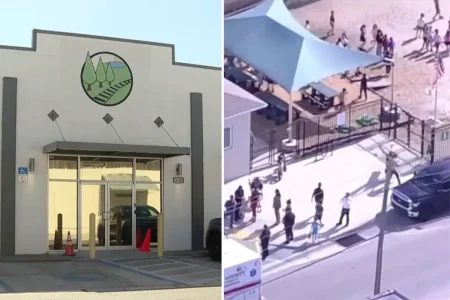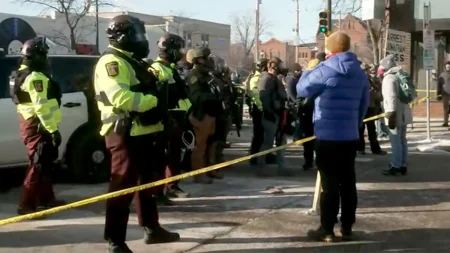Police Raid on Northland Cannabis Cultivator Ignites National Debate on Medical Marijuana
Law Enforcement Action Raises Questions About New Zealand’s Cannabis Policies
In a predawn operation that sent ripples through New Zealand’s medical cannabis community, police officers descended on the rural Northland property of a longtime cannabis cultivator last week, reigniting the nation’s complex conversation about marijuana regulation, patient access, and the line between criminal activity and compassionate care.
The raid, which resulted in the seizure of dozens of plants and the arrest of the property owner—who has reportedly been growing cannabis for over two decades—has become a flashpoint in the ongoing national discourse surrounding medicinal marijuana use in New Zealand. Authorities characterized the operation as part of their continued efforts to combat illegal drug distribution, while advocates for the cultivator claim the plants were primarily grown to supply patients suffering from chronic pain, cancer-related symptoms, and other debilitating conditions that have shown responsiveness to cannabis-based treatments.
“This case represents the complicated reality many New Zealanders face,” said Dr. Helena Kirkwood, a healthcare policy researcher at Auckland University who specializes in alternative medicine regulations. “We have a situation where our laws have evolved to recognize the therapeutic potential of cannabis, yet the practical application of these laws creates substantial gaps that leave patients vulnerable and those attempting to help them at risk of serious criminal charges.”
Historical Context Shapes Current Cannabis Landscape
The Northland region has long held a reputation as one of New Zealand’s cannabis cultivation hotspots, with its favorable growing conditions and relatively remote properties providing ideal circumstances for both small-scale personal growers and more substantial operations. The individual at the center of the current case—whose identity remains protected during ongoing legal proceedings—has reportedly been cultivating cannabis varieties specifically selected for their medicinal properties rather than recreational potency, according to community members who spoke on condition of anonymity.
New Zealand’s relationship with cannabis has undergone significant transformation in recent years. The Medicinal Cannabis Scheme, implemented in April 2020, created a framework for licensed production and prescription access, representing a substantial shift from previous prohibitionist approaches. However, critics argue that the scheme’s strict requirements and limited product availability have failed to address the needs of many patients, particularly those with limited financial resources or living in rural areas with restricted healthcare access.
“What we’re witnessing in Northland is the collision of evolving social attitudes with legal frameworks that haven’t kept pace,” explained Simon Matthews, legal director at Drug Policy Reform New Zealand. “The 2020 referendum on recreational cannabis legalization may have narrowly failed, but polling consistently shows overwhelming support for compassionate access to medicinal cannabis. This disconnect creates precisely the kind of gray areas that lead to situations like the one we’re seeing unfold.”
Patient Advocates Highlight Access Barriers
The raid has galvanized patient advocates who point to ongoing challenges in accessing legal medicinal cannabis products. Despite regulatory changes, many patients report that prescribed cannabis medications remain prohibitively expensive, with monthly costs often exceeding $300-$500 for effective dosages—expenses not covered by the public healthcare system or most private insurance plans.
Lisa Henare, who coordinates a support network for chronic pain patients in Whangarei, described the situation as “heartbreaking” for many community members who had come to rely on the cultivator’s products. “We have elderly people managing arthritis, cancer patients dealing with the side effects of chemotherapy, and veterans with PTSD who found relief through this man’s plants after conventional pharmaceuticals failed them or caused intolerable side effects,” Henare said. “These aren’t people looking to get high—they’re desperately seeking relief from debilitating conditions.”
The accessibility issue extends beyond cost barriers. Rural healthcare providers often lack familiarity with cannabis medicine protocols or express reluctance to prescribe products with which they have limited clinical experience. This knowledge gap means that even patients willing to navigate the legal system and bear the financial burden may struggle to find healthcare professionals prepared to support their treatment path. Patient advocates argue that this systemic failure creates the conditions where underground networks emerge to fill essential needs.
Law Enforcement Perspectives on Cannabis Enforcement
Police officials involved in the operation have maintained that they were simply enforcing existing law, emphasizing that large-scale cannabis cultivation remains illegal regardless of the grower’s intent or the end-use of the product. Northland District Commander Superintendent Mark Trentham defended the action in a brief statement, noting that “police have a responsibility to uphold the law as written, not as individuals might wish it to be interpreted.”
Law enforcement sources, speaking on background, acknowledged the complex position officers find themselves in when dealing with cannabis cases that have medicinal dimensions. “There’s undoubtedly more nuance in how we approach these situations compared to ten years ago,” said one senior officer with over two decades of experience in drug enforcement. “But the legislation still places us in a position where personal beliefs about medical efficacy don’t override statutory obligations.”
The case highlights the evolving approach to cannabis enforcement across New Zealand, with police increasingly exercising discretion in minor possession cases while maintaining a harder line on cultivation operations that exceed personal-use thresholds. This stratified enforcement approach reflects both resource limitations and shifting community expectations, but creates inconsistent outcomes that critics argue undermine the rule of law’s foundational principle of equal application.
Political Responses and Potential Policy Implications
The Northland case has drawn responses from across the political spectrum, with health-focused legislators calling for accelerated reforms to expand medicinal access, while law-and-order advocates defend the importance of maintaining clear boundaries against unregulated drug production. Minister of Health Dr. Ayesha Verrall indicated that the government continues to monitor the effectiveness of the medicinal cannabis scheme and remains “open to evidence-based adjustments that would improve patient outcomes while maintaining appropriate safeguards.”
Opposition health spokesperson Dr. Shane Reti, himself a Northland physician, acknowledged the complicated dimensions of the case. “We need to ensure that patients have affordable, consistent access to quality-controlled medicinal cannabis products,” he stated, “while recognizing that unregulated production introduces significant risks regarding dosage consistency, contaminants, and diversion to recreational markets.”
The timing of the raid coincides with scheduled parliamentary committee hearings on the three-year review of the Medicinal Cannabis Scheme, amplifying its significance as both a specific law enforcement action and a symbolic representation of the policy tensions at play. Health policy analysts suggest that cases like this one provide compelling evidence for considering a more comprehensive approach that bridges the gap between current regulatory frameworks and practical patient needs.
The Path Forward for Medical Cannabis in New Zealand
As the legal process unfolds for the Northland cultivator, broader questions loom about New Zealand’s approach to cannabis regulation. Medical professionals, patient advocates, policy experts, and law enforcement officials increasingly acknowledge that the current system satisfies neither those seeking strict prohibition nor those advocating for more compassionate access models.
Dr. Fiona Wilson, who specializes in palliative care and has prescribed legal cannabis products, believes the case illustrates the need for a more patient-centered approach. “When we design systems that prioritize regulatory complexity over patient welfare, we shouldn’t be surprised when alternative networks develop,” she observed. “The challenge now is finding the balance between appropriate oversight and practical accessibility for those who could benefit from these treatments.”
The Northland case, beyond its immediate legal implications for the individual involved, has become a catalyst for renewed national conversation about how New Zealand balances compassion and control in its cannabis policies. As court proceedings continue in the coming months, the case will likely serve as a reference point in ongoing policy discussions, illustrating both the human costs of enforcement actions and the complex societal trade-offs inherent in drug policy decisions.
For the patients who found relief through the Northland cultivator’s products, the immediate concern remains access to alternative treatments, while the broader question of how New Zealand reconciles evolving medical understanding with its legal frameworks continues to evolve—one patient, one provider, and one policy adjustment at a time.










